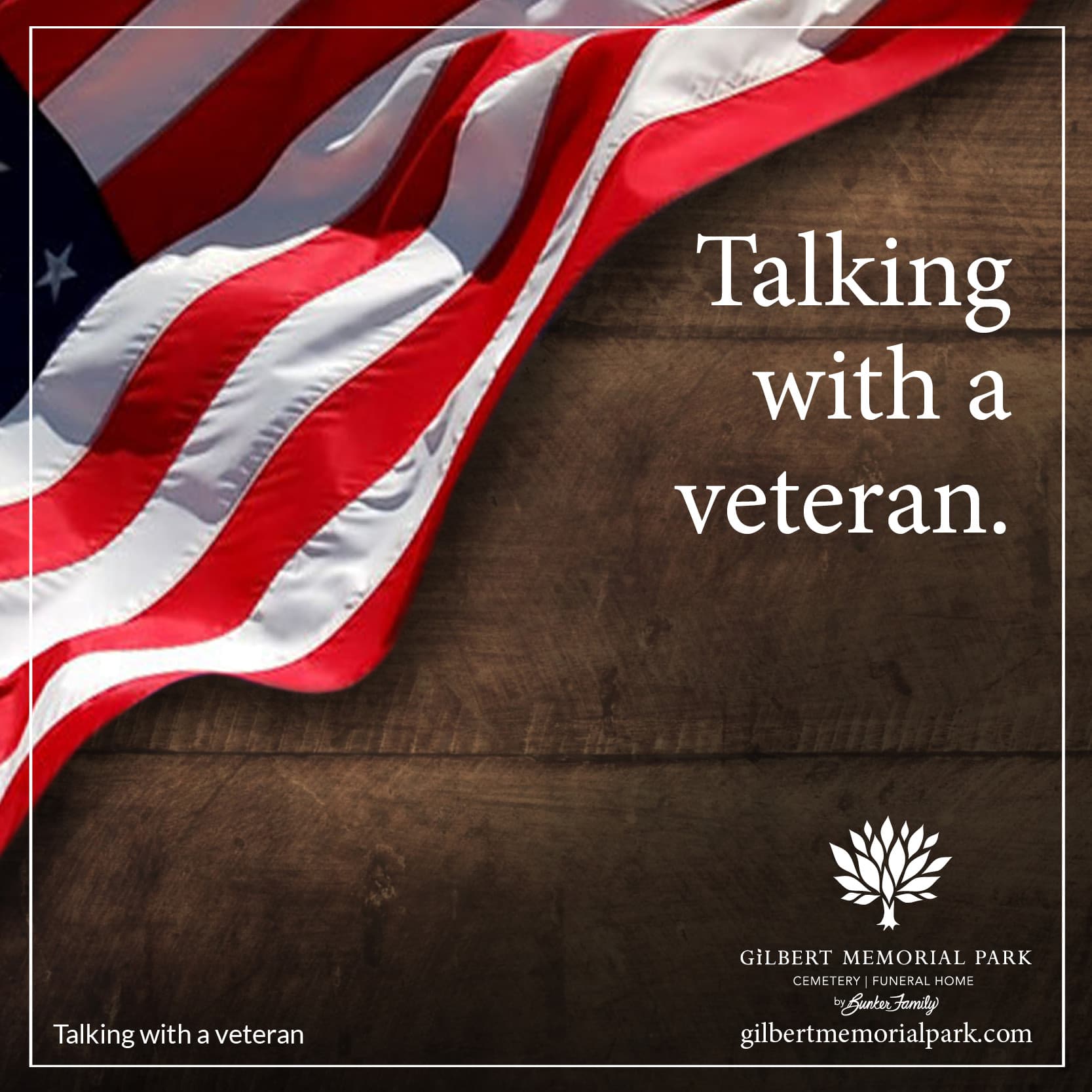Talking with a veteran of the more recent wars or conflicts such as Vietnam, Afghanistan, or Iraq can be intimidating. You may have a parent or spouse who served in Vietnam who has never shared anything about their experience with you. The Vietnam War was different from wars in the past in that the value of the war itself was questioned and many of those who served came home to a hostile public. It was not a hero’s welcome. Their story may have been bottled up all these years and time is running out for families to learn about their loved one’s experience.
Since the Vietnam War, a small percentage of the U.S. population has served in our armed forces. This means the Vietnam experience is not shared by the broader population and those who did not serve can’t possibly understand what war is like. Not understanding can make us uncomfortable about starting a conversation. As a result, veterans can feel isolated while we remain unaware.
How can we push past our discomfort? How can we talk with these people we love and appreciate about a period in their life that was so very important to them? It can be tricky depending on how well you know the veteran. Below you will find some tips to aid your conversation with a veteran:
- During the discussion:
- Take your time, go slow
- Plan to LISTEN
- Listen without comment or judgment
- Listen to learn, not to tell.
- Below are some suggestions you can ask:
- Would be willing to talk with me about your experience?
- What service were you in?
- What inspired you to join?
- What does your service mean to you?
- Would you mind sharing what you are currently doing?
- Depending on how well you know the veteran, you may want to avoid so of the topics/questions below:
- Don’t ask if they killed anyone or saw any dead bodies.
- Don’t be surprised if they don’t want to talk.
- Don’t ask about PTSD.
- Don’t make it about you.
- Don’t think you know what it is like to go to war unless you have been to war.
It is always a good idea to do your homework and study the war prior to your discussion. And most of all, express your appreciation for their time and service.



